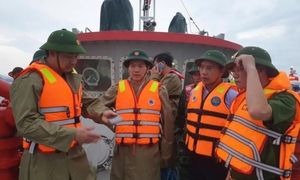AMSTERDAM, March 5 (Reuters) - ASML, the computer chip equipment maker, reported on Wednesday its annual review highlighting how uncertainty over export controls has led to weakened customer demand during 2024.
ASML stated, "Macroeconomic uncertainty - including [over] technological sovereignty and export controls - led certain customers to remain cautious and control capital expenditure." This statement reflects growing concerns affecting the company's diverse clientele, which includes major players like TSMC of Taiwan, South Korea's Samsung, SK Hynix, China’s SMIC, and Intel from the U.S.
Crucially, ASML noted the number of entities within China, accounting for 36% of its sales in 2024, is now subject to various restrictions imposed by the U.S. These disruptions have left ASML facing uncertainties linked to increasingly complex regulations and potential counteractions.
A significant expectation from ASML forecasts is its anticipated decrease of China sales, projected to drop toward 20% by 2025. Despite these challenges, the company reiterated its sales predictions for 2025 of 30-35 billion euros, up from 28.3 billion euros (approximately $30.24 billion) recorded for 2024. The upswing is largely attributed to the boom of artificial intelligence, which is driving demand for ASML's extreme ultraviolet (EUV) lithography systems, integral for chip manufacturing.
Looking to bolster its governance amid these challenges, ASML has announced the appointment of Karien van Gennip, the former Dutch Social Affairs Minister, to its supervisory board. This adds to the company's recent moves to strengthen its executive team, which also includes hiring former French Finance Minister Bruno Le Maire as special advisor to the executive board and former deputy Economy Minister Frank Heemskerk as Global Affairs Chief.
ASML's strategic choices reflect not just the immediate operational environment but also the broader geopolitical tensions tied to international trade. Despite the downward pressure on its China business, ASML's commitment to innovation and adaptation can leverage the continued shift toward AI technologies, potentially stabilizing its growth narrative moving forward.
Investors and analysts alike will be watching closely as ASML navigates these turbulent waters, balancing its supply chain commitments with the regulatory realities imposed by U.S.-China relations.



